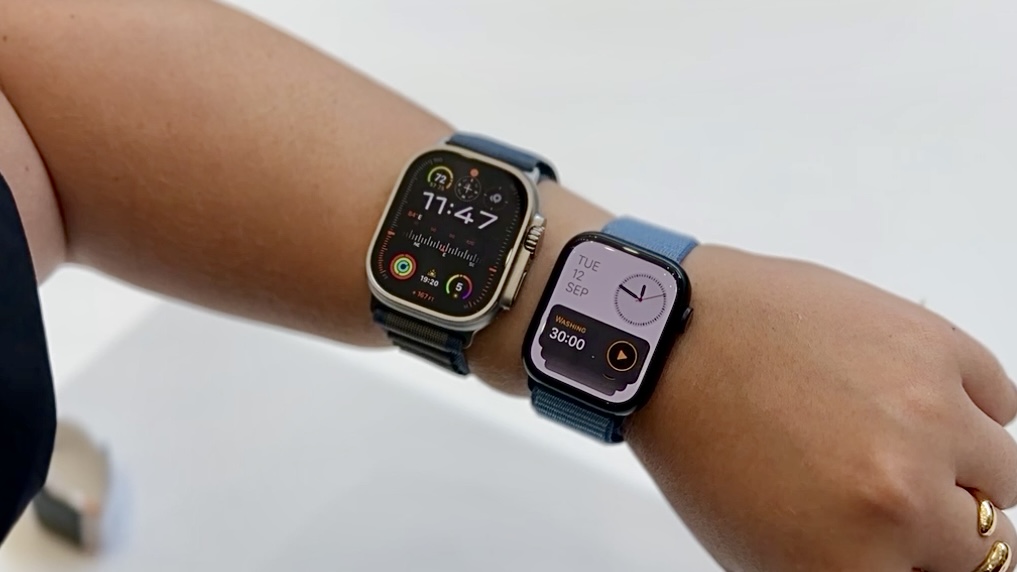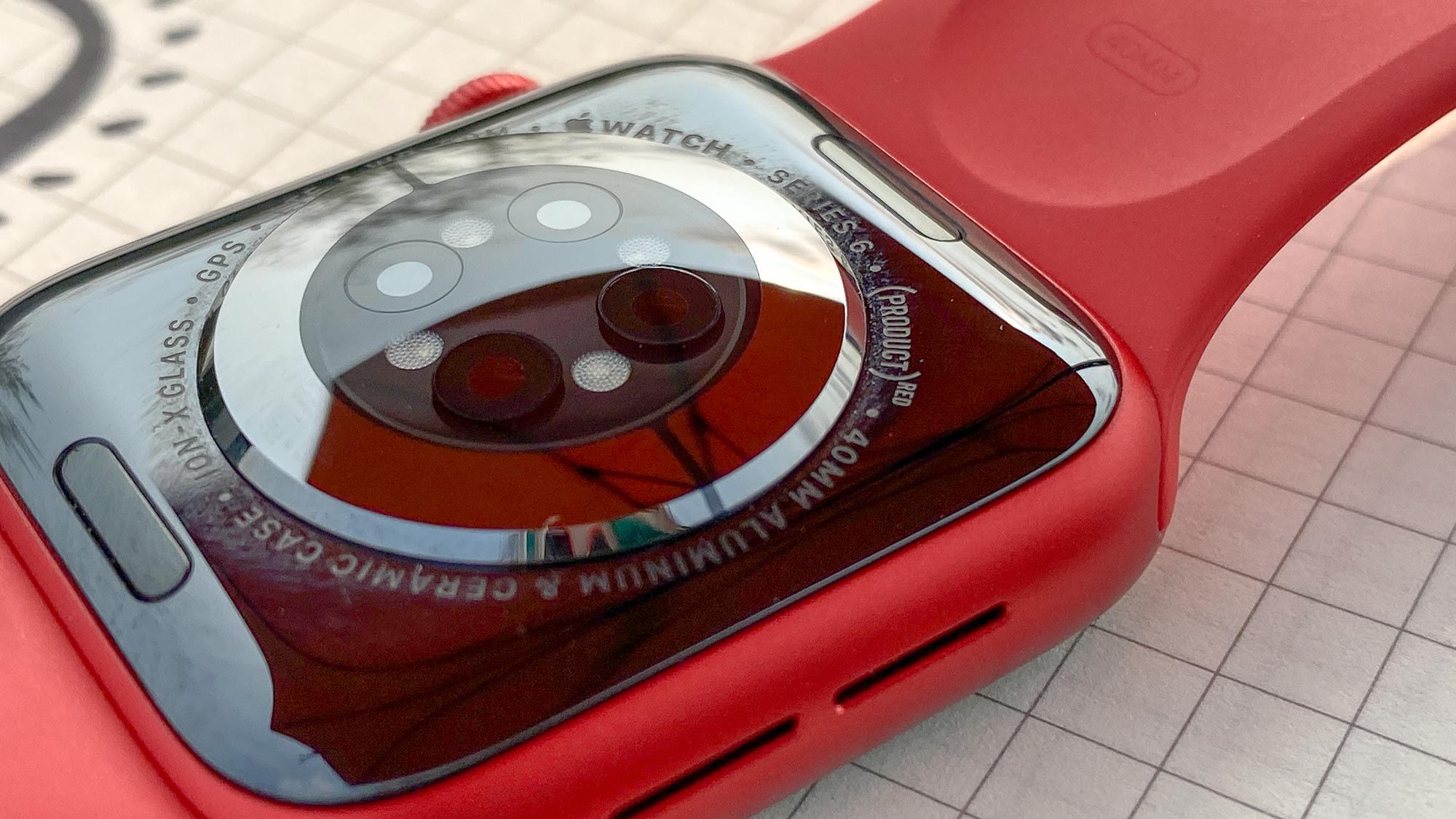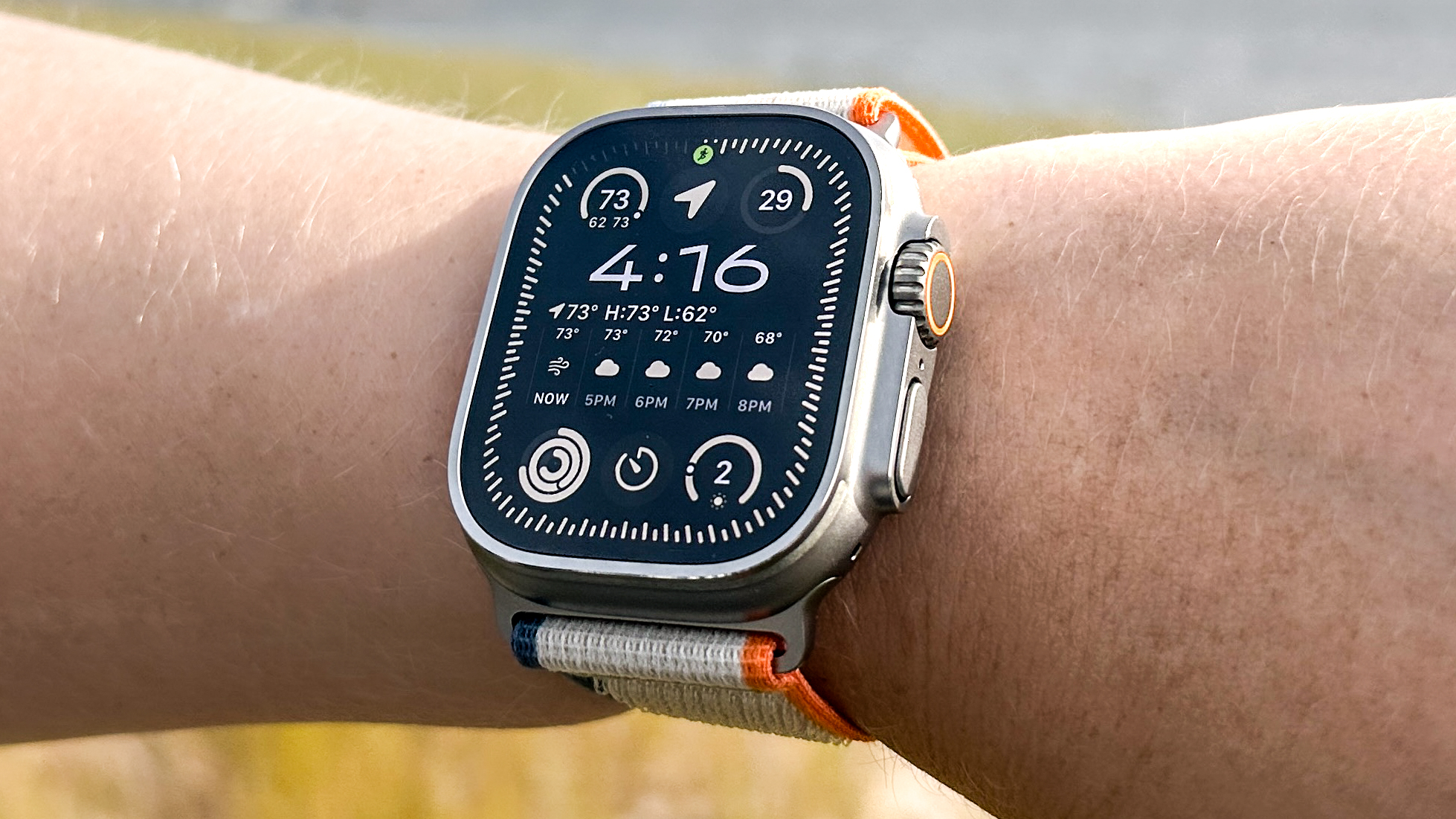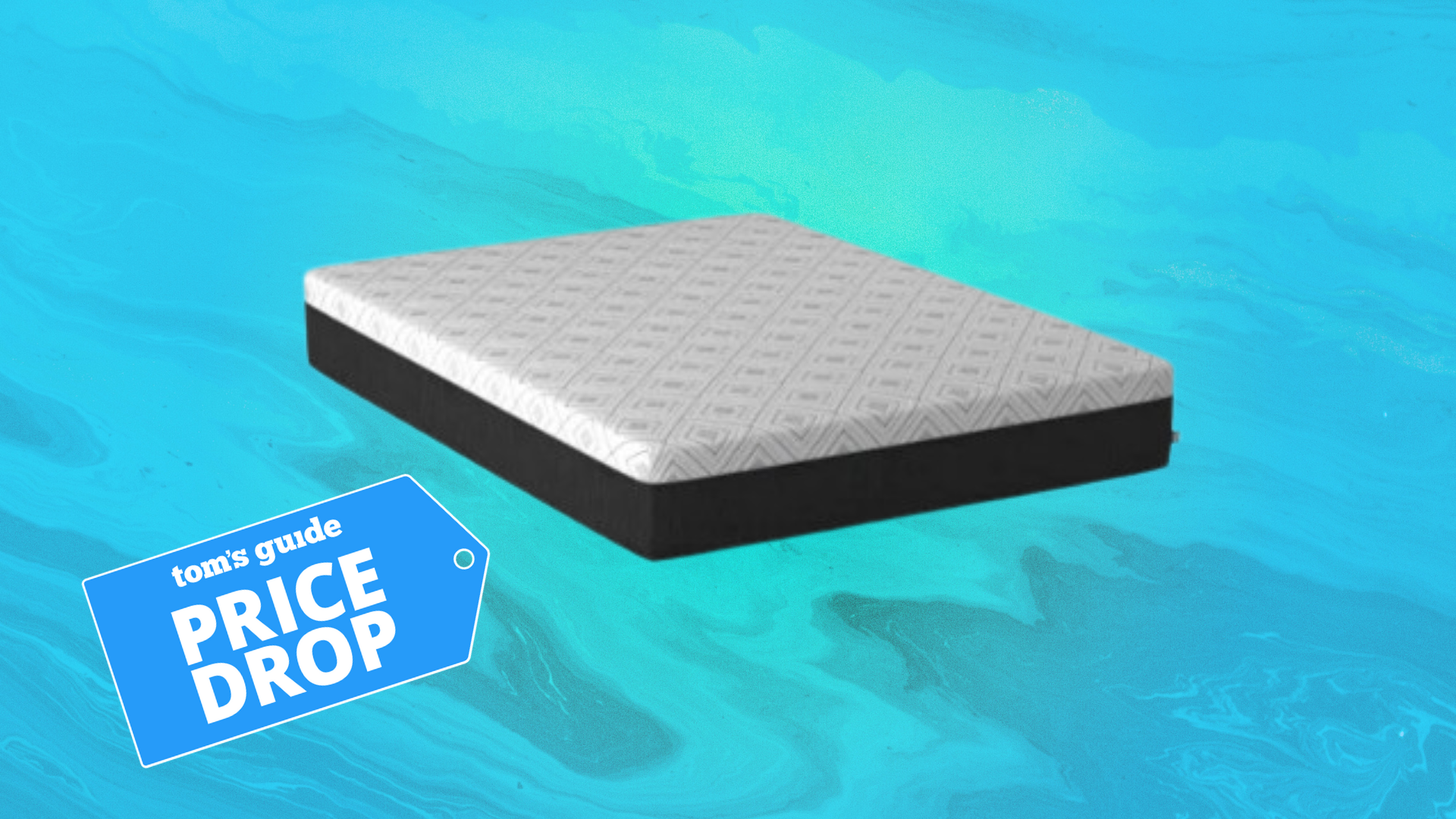Apple Watch ban — how claims of stolen tech forced Apple to pull Apple Watch 9 and Apple Watch Ultra 2
Analysts and experts weigh in on Apple's decision to halt Apple Watch 9 and Ultra 2 sales

The Apple Watch ban isn't actually blocking sales of the Apple Watch Series 9 and Apple Watch Ultra 2 at the moment, but between December 21 and December 27, 2023, these two models were unavailable to buy in the U.S. And there's a chance it could happen again
This all stems from a drawn-out patent dispute over the blood oxygen sensor (SpO2) found in most Apple Watch models, beginning with the Series 6. The legal battle's ongoing, so the future of these watches still hangs in the balance.
Since the Apple Watch 9 and Apple Watch Ultra 2 are two of the best smartwatches on the market right now, this is a big deal. So if you want the lowdown on what's happening, this is the place to read about it.
Apple Watch ban: The backstory in brief
Back in October, the US International Trade Commission (ITC) upheld a ruling from earlier in the year stating Apple violated a patent owned by Masimo — a smaller medical technology company — with the launch of 2020’s Apple Watch Series 6 (now discontinued).
As noted, the dispute is over the SpO2 sensor found on the rear of most Apple Watch models going back to 2020. In short, Masimo alleges that Apple ripped off its tech and continues to do so with each subsequent release beyond the Series 6. Apple denies this, counterclaiming instead that Masimo ripped off the entire Apple Watch design.

Why did Apple pull the Series 9 and Ultra 2?
October's ITC ruling automatically triggered a 60-day presidential review period. President Biden and his administration could have vetoed the ruling, but that period expired on December 25th, meaning the ban went ahead. On December 26th, U.S. Trade Representative Katherine Tai issued a statement confirming that she did not want to overturn the original decision.
Before that date, Apple voluntarily pulled the Ultra 2 and Series 9 from online and in-store shelves just ahead of schedule, in anticipation of the president not intervening. What happens next? Apple will appeal the ITC's decision to the Federal Circuit. Unfortunately for Tim Cook and company, its attempt for a stay on the blocked sales has been argued against rather emphatically by the ITC, but it remains to be seen what the court will decide to do.
Get instant access to breaking news, the hottest reviews, great deals and helpful tips.
Apple Watch ban: How bad is the situation?
Apple Watches represents roughly 50% of the world's global smartwatch market. So this is a pretty big deal for the Cupertino tech giant. However, several factors mitigate the impact on consumers and Apple's bottom line.
For one, the ban only impacts the U.S. market. "Apple Watch sells particularly well in its home market. [However] Apple gets the majority of sales outside the U.S.," said Avi Greengart, chief analyst with Techsponential.
The timing also couldn't be better for Apple. "In the U.S., most of its holiday sales occur before December 24 when the ban would go into effect, so the financial impact would start after the holiday season," says Greengart.
Finally, even if sales of the Ultra 2 and Series 9 stop, Apple says that the Apple Watch SE will continue to be available from Apple's online and brick-and-mortar stores. The SE also happens to be the best-value smartwatch available.
Apple Watch ban: How long will it last?

How long will US customers be unable to purchase the Apple Watch Ultra 2 and Series 9? "It’s hard to predict," Greengart said. "The watches will be removed from the market unless the ITC ruling is vetoed or until it is overturned on appeal."
Apple is working on getting the decision overturned by filing an appeal (via AppleInsider), which asks for an interim block on the sales ban while the International Trade Commission prepares its response. It's also asked if a redesigned version (specifics of which are redacted in the document) of the two Apple Watches would be exempt from the ruling, a possible way for Apple to continue selling smartwatches without infringing the patent further.
Of course, Apple and Masimo could always settle up and avoid all the hubbub and awkward press. Apple may also roll out a new Apple Watch Series 10 — which we just got a glimpse at— and/or Ultra 3 ahead of schedule to compensate, though this is probably just wishful thinking.
What about third-party retailers?
Big box retailers like Amazon and Best Buy can continue selling the Apple Watch Ultra 2 and Series 9 beyond the December 25 deadline. The catch is that once those pallets of devices dry up, new shipments won't roll in until things are settled.
Greengart expects both devices will remain available via third-party retailers through most of January but not much further beyond. Just don't expect Apple to promote this, as apparently it's instructed its staff not to point customers to any store that continues to sell the watches.
How does this impact repairs?
If you've already got your Apple Watch 9 or Ultra 2, you may find it hard to get it fixed by Apple. According to post-ban reporting, Apple won't perform any hardware fixes or exchanges for the Apple Watch 6 or later, covering all the watches that feature the patent-violating SpO2-measuring tech. You can still get help with software or accessory-based problems, and if your watch is under warranty or AppleCare coverage, then you can still get it fixed normally.
What's the best-case scenario for Apple?
Apple is by no means backed into a corner in the Masimo pulsometer patent saga, even if things appear dire. "The best possible outcome for Apple is for President Biden to veto the ITC ruling," said Greengart. "The next best is for Apple to quickly win on appeal," he adds.
"Beyond that, a settlement with Masimo [would be best], but Apple would almost certainly prefer to discourage rivals from competing through the legal system than in the marketplace," Greengart added.
Apple Watch ban: What happens next?
The Apple Watch ban case is almost certainly headed to the US Court of Appeals for the Federal Circuit. How long it will work its way through there is anyone's guess. The U.S. court system is notoriously sluggish!
For its part, Apple is likely doing all it can internally to fix the issue. According to a report from Bloomberg's Mark Gurman, the company is working on a software update it believes could satisfy US Customs. Gurman states engineers in Cupertino are racing to make changes to algorithms on the device, calling it a "high-stakes engineering effort unlike any Apple has undertaken before."
We'll update this story as we learn more. Stay tuned.
More from Tom's Guide
- Apple Watch SE (2022) review
- Apple Watch Ultra 2 review: It’s the ultimate Apple Watch
- Apple Watch Series 9 review

Dan Bracaglia is the Tom’s Guide editorial lead for all things smartwatches, fitness trackers and outdoor gear. With 15 years of experience as a consumer technology journalist testing everything from Oura Rings to instant cameras, Dan is deeply passionate about helping readers save money and make informed purchasing decisions. In the past year alone, Dan has assessed major product releases from the likes of Apple, Garmin, Google, Samsung, Polar and many others.
An avid outdoor adventurer, Dan is based in the U.S. Pacific Northwest where he takes advantage of the beautiful surroundings every chance he gets. A lover of kayaking, hiking, swimming, biking, snowboarding and exploring, he also makes every effort to combine his day job with his passions. When not assessing the sleep tracking and heart rate accuracy of the latest tach gadgets, you can find him photographing Seattle’s vibrant underground music community.
